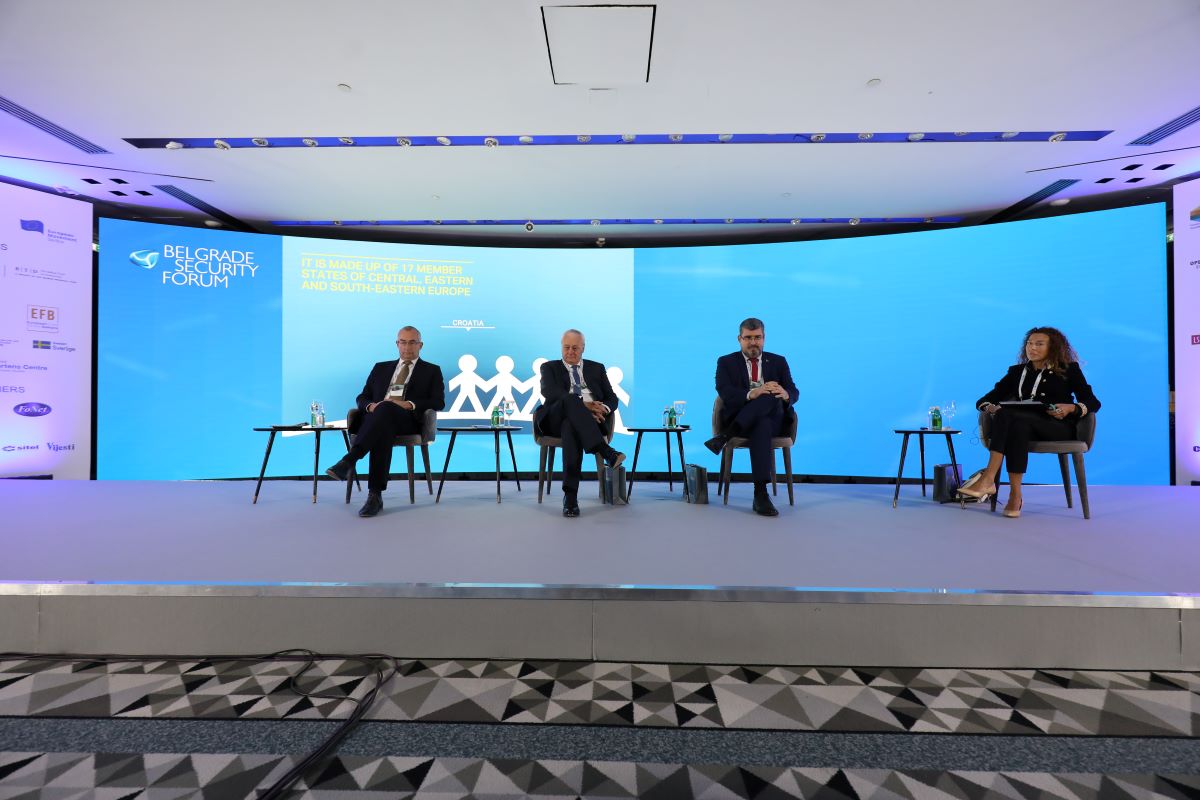Improving region to region cooperation is increasingly important in a globalized world
Mr. Nemanja Starović, State Secretary at the Ministry of Foreign Affairs of Republic of Serbia, stated that the Central European Initiative (CEI) is often unfairly underestimated. According to his view this initiative is one of the most important ones because it properly responds to all basic needs of the whole region. He added that positive impact of the CEI is especially visible now in the pandemic. He is of the opinion that Serbia’s citizens have two sides of the identity. One is related to the EU, and the other one is connected to the Central Europe.
Secretary General of the CEI, Mr. Roberto Antonione emphasized that regional organizations are, in a certain way, innovation in diplomacy. He added that regional cooperation is even more important in nowadays world which is subordinated to the process of globalization. He also emphasized that policy dialogue is a key driver of cooperation that improves the ability to effectively handle challenges.
Ms. Gordana Đurović, Former Deputy Prime Minister and Minister for European Integration of Montenegro, pointed out that common regional market is the initiative that has opportunity to be very successful. Unfortunately, she said, the Western Balkans countries still have a lot of obstacles in respect of functional regional cooperation. Ms. Đurović also stressed out that the Open Balkans is some kind of criticism of the Berlin Process.
State Secretary in The Ministry of Foreign Affairs and Trade of Hungary, Mr.Peter Sztaray highlighted the great extent of bilateral cooperation between Serbia and Hungary. In this respect he added that multilateral cooperation cannot be proper substitution for bilateral channel of cooperation.
As for the comparison between the Berlin Process and the Open Balkans initiative, Starović stated that the relation between these two initiatives is like a system of concentric circles. They are not mutually exclusive. He also said that the Open Balkans initiative is more ambitious than Common Regional Market because it aspires to abolish cross-borders. Mr. Starović concluded his remarks by announcing that soon fourth country will join the Open Balkan initiative.
Antonioni stressed that multilateralism is absolutely the best way to overcome challenges nowadays. The evidence for this statement is functional cooperation between the CEI and WHO for Europe during pandemic. In this context exchanging of the information and good practices was very helpful.
Sztaray declared that Hungary supports all forms of regional cooperation. There are obvious results from Visegrad and CEI initiatives. He also added that joining of the Western Balkans countries to the EU is very important because of stability of the region.
Starović highlighted that if there is no chance to become full EU members soon, why not cooperate through Schengen Zone? Regional economic cooperation is not zero-sum game, he said. There is much of added value through regional economic cooperation.
Đurović concluded that perhaps we, as a region, cannot participate with great share of GDP, but we have great geographical position which is significant strategically. It is important to receive messages of solidarity and trust from the EU, she stressed in the end of the session.








